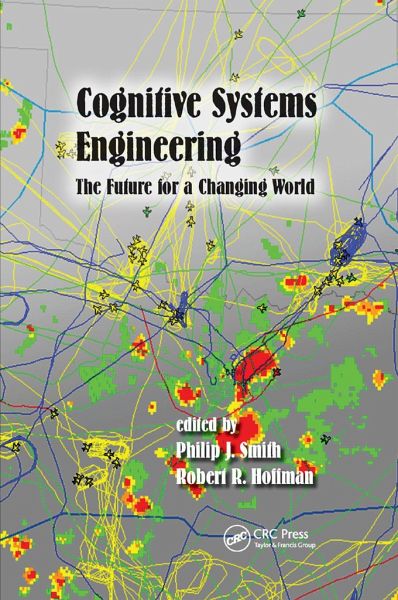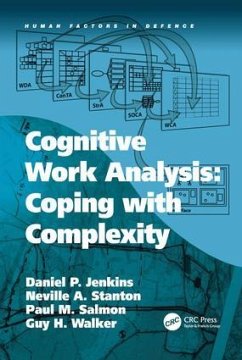
Broschiertes Buch
Cognitive Systems Engineering
The Future for a Changing World
Herausgeber: Smith, Philip J.; Hoffman, Robert R.
Versandkostenfrei!
Versandfertig in 1-2 Wochen

PAYBACK Punkte
48 °P sammeln!




This volume provides an exceptional perspective on the nature, evolution, contributions and future of the field of Cognitive Systems Engineering (CSE). It is a resource to support both the teaching and practice of CSE. It accomplishes this through its organization into two complementary approaches to the topic.
Dr. Philip J. Smith is a Professor in the Department of Integrated Systems Engineering at The Ohio State University and a Fellow of the Human Factors and Ergonomics Society. His research and teaching focus on cognitive systems engineering, human-automation interaction and the design of distributed work systems. This research has been supported by the FAA, NASA, the National Heart, Lung and Blood Institute, the U.S. Army and the U.S. Department of Education. Of particular significance has been his work on: * The influence of brittle technologies on human-machine interactions. * Constraint propagation as a conceptual approach to support asynchronous coordination and collaboration in the National Airspace System, including work on the design of airspace flow programs, coded departure routes, collaborative routing and the use of virtual queues to manage airport surface traffic. * Interactive critiquing as a model to support effective human-machine cooperative problem solving through context sensitive feedback and the incorporation of metaknowledge into machine intelligence. * Continuous adaptive planning. Dr. Smith, his students and his colleagues have won numerous awards, including the Air Traffic Control Association David J. Hurley Memorial Award for Research in Collaborative Decision Making, the Airline Dispatchers Federation National Aviation Safety Award and best paper awards in Human Factors and Clinical Laboratory Science. Hoffman is a recognized world leader in cognitive systems engineering and Human-Centered Computing. He is a Fellow of the Association for Psychological Science, Fellow of the Human Factors and Ergonomics Society, Senior Member of the Association for the Advancement of Artificial Intelligence, Senior Member of the Institute of Electrical and Electronics and Engineers, and a Fulbright Scholar. His Ph.D
Produktdetails
- Verlag: CRC Press
- Seitenzahl: 388
- Erscheinungstermin: 12. Dezember 2019
- Englisch
- Abmessung: 234mm x 156mm x 21mm
- Gewicht: 588g
- ISBN-13: 9780367879402
- ISBN-10: 0367879409
- Artikelnr.: 58441836
Herstellerkennzeichnung
Libri GmbH
Europaallee 1
36244 Bad Hersfeld
gpsr@libri.de
Für dieses Produkt wurde noch keine Bewertung abgegeben. Wir würden uns sehr freuen, wenn du die erste Bewertung schreibst!
Eine Bewertung schreiben
Eine Bewertung schreiben
Andere Kunden interessierten sich für











